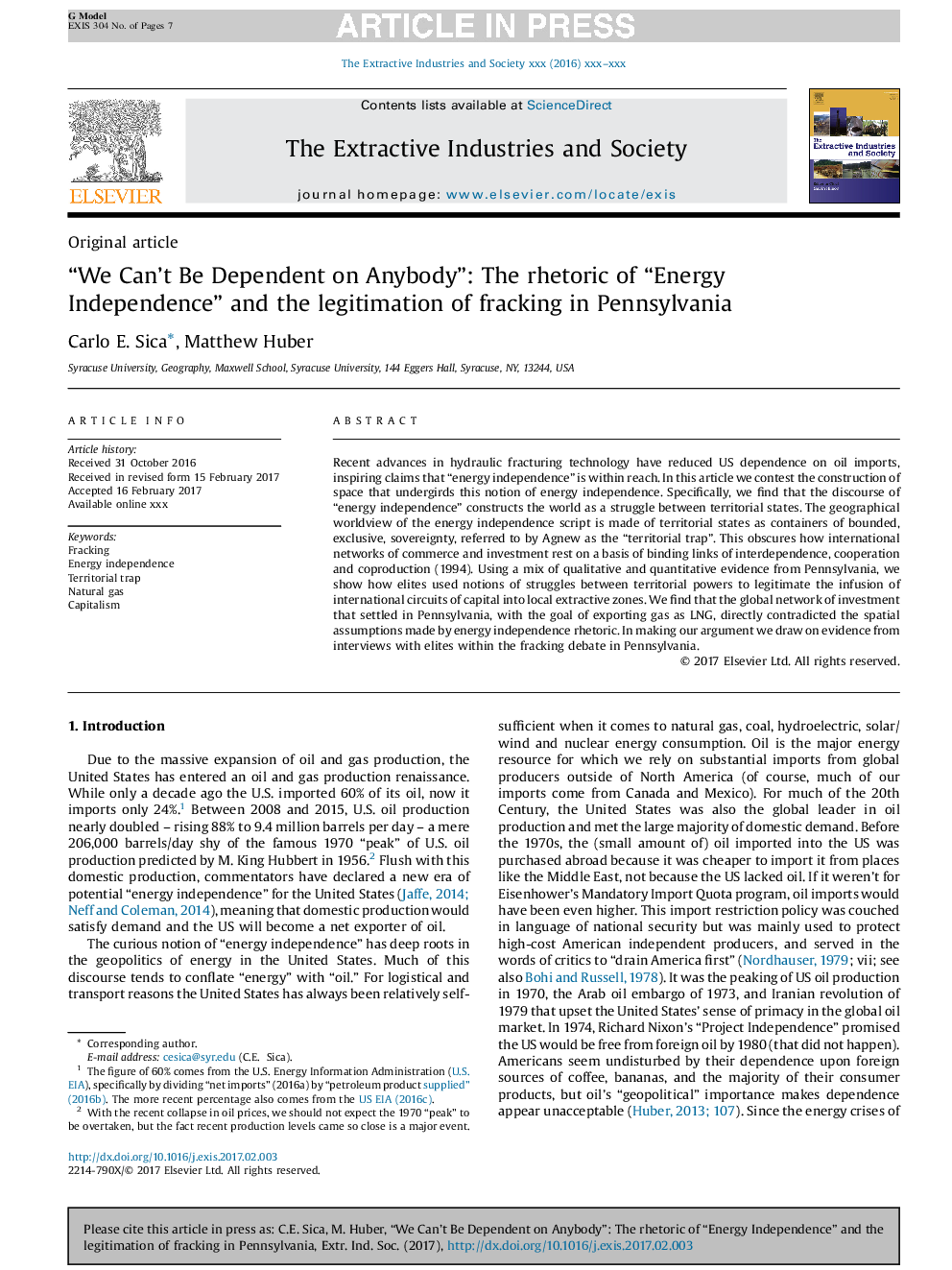| Article ID | Journal | Published Year | Pages | File Type |
|---|---|---|---|---|
| 5114401 | The Extractive Industries and Society | 2017 | 7 Pages |
Abstract
Recent advances in hydraulic fracturing technology have reduced US dependence on oil imports, inspiring claims that “energy independence” is within reach. In this article we contest the construction of space that undergirds this notion of energy independence. Specifically, we find that the discourse of “energy independence” constructs the world as a struggle between territorial states. The geographical worldview of the energy independence script is made of territorial states as containers of bounded, exclusive, sovereignty, referred to by Agnew as the “territorial trap”. This obscures how international networks of commerce and investment rest on a basis of binding links of interdependence, cooperation and coproduction (1994). Using a mix of qualitative and quantitative evidence from Pennsylvania, we show how elites used notions of struggles between territorial powers to legitimate the infusion of international circuits of capital into local extractive zones. We find that the global network of investment that settled in Pennsylvania, with the goal of exporting gas as LNG, directly contradicted the spatial assumptions made by energy independence rhetoric. In making our argument we draw on evidence from interviews with elites within the fracking debate in Pennsylvania.
Related Topics
Life Sciences
Environmental Science
Management, Monitoring, Policy and Law
Authors
Carlo E. Sica, Matthew Huber,
